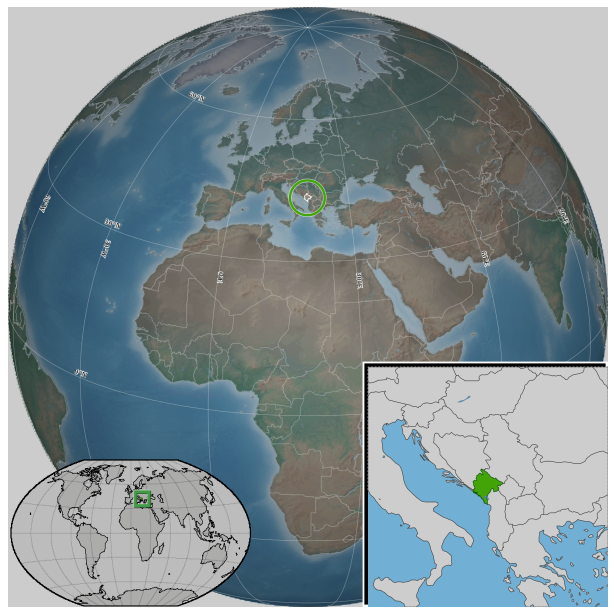On March 19, 2023, Montenegro conducted its presidential election, with long-serving incumbent President Milo Đukanović eligible to seek re-election. As no candidate managed to secure a majority, a runoff election took place on April 2.
Đukanović, who helms the populist Democratic Party of Socialists (DPS), emerged as the front runner in the initial round, garnering 35% of the votes. Jakov Milatović, representing the recently established centrist Europe Now! movement, surpassed expectations by earning 29% of the votes on an anti-corruption platform, qualifying for the runoff against Đukanović. Andrija Mandić, a key figure in the right-wing populist Democratic Front (DF), ranked third with 19% of the votes in the first round.
Montenegro
Montenegro is a small, picturesque country in Southeastern Europe, situated on the Adriatic coast of the Balkan Peninsula. It shares borders with Croatia, Bosnia and Herzegovina, Serbia, Kosovo, and Albania. The country covers an area of around 13,812 square kilometers (5,333 square miles) and has an estimated population of around 620,000. The official language is Montenegrin, which is very similar to Serbian, Croatian, and Bosnian, and the currency used is the Euro.
Montenegro’s capital and largest city is Podgorica, while the historical city of Cetinje serves as the country’s cultural and educational center. Montenegro is known for its stunning natural beauty, which includes a diverse range of landscapes such as mountains, lakes, canyons, and pristine beaches. Popular tourist attractions include the Bay of Kotor, Durmitor National Park, and the Tara River Canyon.
Montenegro has a rich history and was part of various empires and states throughout the centuries, including the Roman Empire, Byzantine Empire, and the Kingdom of Yugoslavia. It gained independence from Serbia and Montenegro in 2006 through a referendum. Montenegro is a parliamentary democracy and a member of various international organizations, including the United Nations and NATO. The country is also a candidate for European Union membership, having begun accession negotiations in 2012.
Etymology:
The name “Montenegro” comes from the Venetian language, which was spoken in the Venetian Republic, a historical state in the northeastern part of Italy. In the Venetian language, “Montenegro” translates to “Black Mountain” (monte = mountain, negro = black). This name refers to the dark, dense forests that cover Mount Lovćen and the surrounding area, which appeared black from a distance.
History:
The history of Montenegro dates back to ancient times, with the region being inhabited by various Illyrian tribes before becoming part of the Roman Empire around the 2nd century BCE. After the fall of the Western Roman Empire, the area fell under the rule of the Byzantine Empire and, later, the Serbian Principality of Duklja in the 11th century.
In the 15th century, Montenegro became an independent state called the “Prince-Bishopric of Montenegro.” This theocratic state was ruled by prince-bishops (vladikas), who held both religious and secular power. Montenegro successfully resisted Ottoman rule for centuries, despite being surrounded by Ottoman territories.
The modern state of Montenegro emerged in the mid-19th century, when it became a secular principality. In 1910, Montenegro transformed into a kingdom under King Nikola I Petrović-Njegoš. However, after World War I, Montenegro was incorporated into the newly formed Kingdom of Serbs, Croats, and Slovenes (later renamed the Kingdom of Yugoslavia).
During World War II, Montenegro was occupied by Axis forces and saw the rise of a strong partisan resistance movement. After the war, Montenegro became one of the six socialist republics within the Socialist Federal Republic of Yugoslavia, led by Josip Broz Tito. The breakup of Yugoslavia in the early 1990s led to the formation of the Federal Republic of Yugoslavia, consisting of Serbia and Montenegro.
In 2003, the Federal Republic of Yugoslavia was reconstituted as the State Union of Serbia and Montenegro. However, this union was short-lived, as Montenegro held a successful referendum on independence in 2006. Since then, Montenegro has been a sovereign state with aspirations of joining the European Union and fostering regional stability and cooperation.

